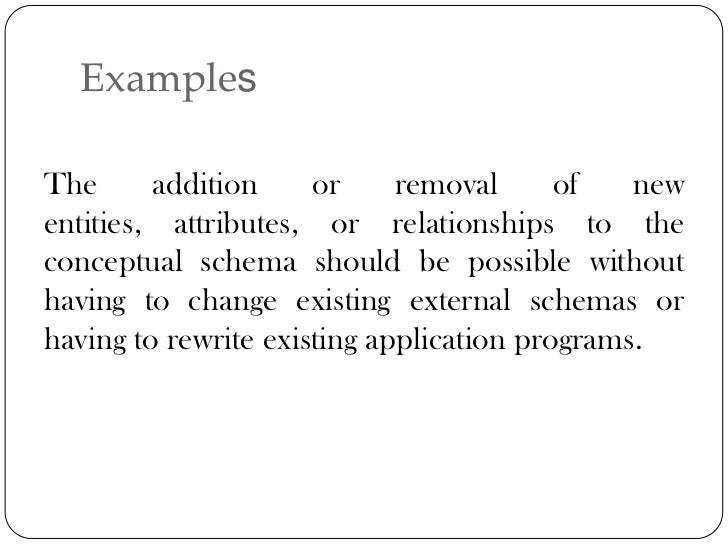
Pengertian Program Data Independence

Module 1: Preliminary Research Steps Important Resources This course is a brief overview about research design that is intended to cover the basics of designing and implementing a scientific study. Although this course will address every step of the research process, it is by no means exhaustive and is no substitute for a college-level course in research methodology, nor is it a substitute for an experienced research advisor.
A navigational database is a type of database in which records or objects are found primarily. One of the earliest navigational databases was Integrated Data Store (IDS), which was. And a higher level of data independence (that is, the ability of programs to continue working as the database structure evolves.).
For further study in this area, see Trochim’s “.” It is one of the main sources used for this guide and provides descriptions about the various parts of the process, including diagrams and examples to simplify complex concepts. Choosing a Topic Before a researcher chooses a topic for a project, it is important to identify a broad area of inquiry and interest. This may be as broad as “global eye health” or “personality psychology,” but it should be an area that is of interest to the researcher. Within a broad topic of inquiry, each researcher must begin narrowing the field into a few subtopics that are of greater specificity and detail. For example, a researcher may be interested in “global eye health,” but could focus more specifically on “proper eye care and how it affects individuals.” Although this topic is still too broad for a research project, it is more focused and can be further refined into a coherent project. Students as well as professional researchers discover their topics in both conventional and unconventional ways. Many researchers find that their personal interests and experiences help to narrow their topic.
For students, previous classes and course material are often the source of research ideas. Furthermore, current events in politics as well as in academia may inspire topics for research. Igloo kool mate 40 instruction manual. Academic journals such as Health Affairs, Health Economics, and the American Journal of Bioethics can provide good material for new studies, and e-resources such as PubMed, Google Scholar and Philosopher’s Index are also good starting places. Lastly, many research ideas are generated through dialogue—by talking with professors, fellow students, and family. Literature Review One essential task when undertaking a research study is to review the existing literature on the topic and use it to inform the construction of the new study. The literature review should be conducted early in the research process, directly after the researcher chooses a topic.
A literature review can bring clarity and focus to the research problem and broaden one’s knowledge base while also identifying possible “knowledge gaps,” or gaps in the literature, that new research may be able to address. In addition, past studies can improve methodology and help the researcher to contextualize his or her findings. The literature review is crucial because an important responsibility in research is to add to a body of knowledge and to compare one’s findings with others. The procedure is simple: the researcher must search the literature in his or her area of interest, review the selected studies, and develop a theoretical framework for his or her own study. For those pursuing research about community eye health, Unite For Sight's can be used as a starting point. What makes a good research question? Not all research questions are good ones—in other words, not all questions can be answered through qualitative and quantitative research methodologies.
A good research question needs to: • Be specific: A researcher must clearly define his or her question using known definitions outlined in the literature. For example, a poor research question would be: How do people’s lives improve after surgery? Not only does this research question fail to specify the study population, it contains the vague term “improve.” The researcher must specify what he or she means by this term—does it involve a physical improvement or an improvement in mental state? The more specific your research question, the better. • Address an important and relevant issue: Scientific research is done to increase knowledge, not simply for a single researcher’s personal satisfaction. The question the researcher decides to pursue must have some beneficial implications. With this in mind, the researcher may continue narrowing the study focus to an area that can be addressed as a single question.